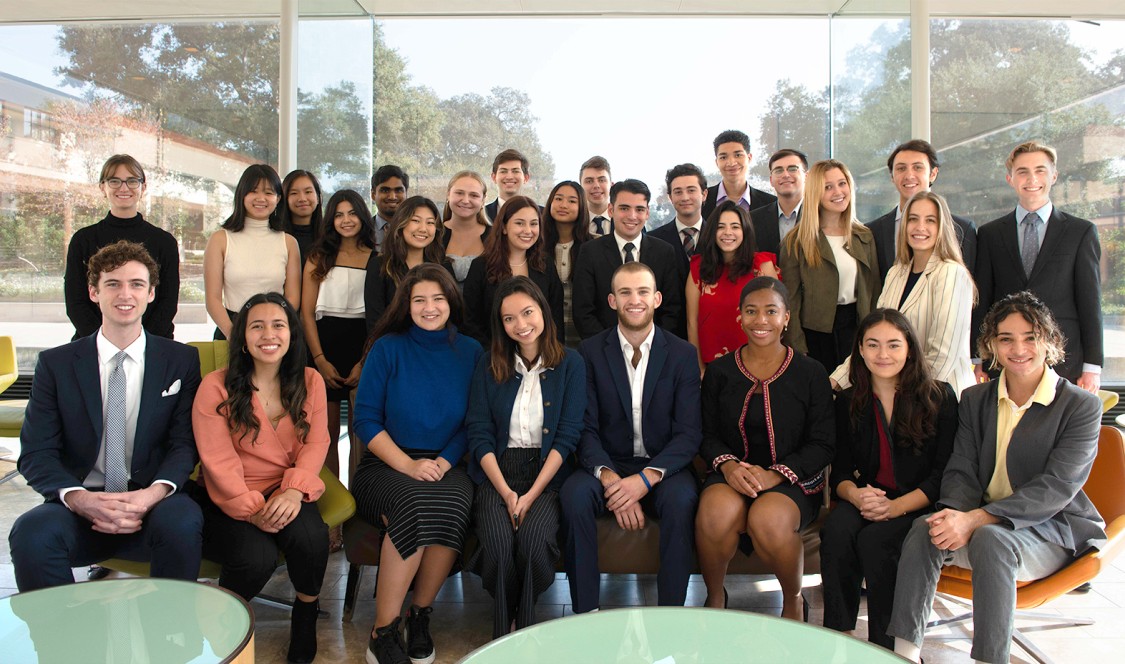The CMC Model United Nations team has scored another historic success, ranking fourth in the nation, and earning its highest national ranking ever.
In addition, team members topped their West Coast competitors by taking the No. 1 slot—becoming “Best in the West.”
The team first broke into the Top 5 in the Best Delegate rankings in 2019-2020, landing fifth in the nation and first on the West Coast. After a year without in-person conferences during the pandemic, the CMC MUN team—who have always emphasized teamwork and camaraderie over awards—looked at 2021-2022 as a year for rebuilding.
“We had not one, but two classes, so half of our team were newbies and had never been to a single in-person conference,” CMC MUN President Kelsey Clarke ’22 said. “So, our expectations were that we wanted to rebuild to make sure that we had a solid foundation to work our way back up to Top 5 in future years.”
Instead they surpassed expectations, and ranked fourth in the U.S., in the company of the University of Chicago, American University, and Georgetown University, according to the Best Delegate’s Fall 2021 North American College Model UN rankings.
“To get to fourth in the nation right off the bat was surprising, and so rewarding!” Clarke said. “It goes a long way to show how much preparation we’ve done. We’ve taken time to revamp our team over COVID, and we modified and strengthened our training program for both General Assembly and Crisis committee training. As a result, we’ve had a much stronger presence on the circuit.”
CMC Prof. Jennifer Taw, the team’s faculty advisor, acknowledged the challenges that CMC MUN overcame. “The MUN leadership and team members showed remarkable resiliency and dedication after the frustration of trying to train, team-build, and attend conferences on-line for over a year,” she said.
“Despite all, the MUN organization rebounded, bringing on fantastic first years and sophomores, refreshing and building up everyone's skills, and creating a strong team dynamic,” Taw continued. “It was a pleasure working with Kelsey and Calder (Altman’22, CMC MUN vice president) as they navigated unusual challenges and worked hard to maximize the team's strengths.”
Some of the accomplishments that earned CMC MUN their highest ranking ever were winning delegation awards at three of the five conferences the team attended. They swept the West Coast—Berkeley, UCLA, USC and UCSB—with a pair of Best Large Delegation awards at Trojan MUN and SBI MUN, and received an Outstanding Small at NCSC.
Beyond the training, Clarke said they fared so well because they are a “culture first, award second type of team.”
“We have this tight knit community that we foster. Our motto is ‘team comes first.’ It doesn't matter who’s winning these individual awards. All that matters are delegation awards,” said Clarke.
Membership fluctuates between 30 and 36 members, with a high percentage of international relations, PPE, and economics majors, and everyone gets to participate.
“A lot of teams on the circuit are way bigger than ours, and only the best are allowed to travel and to compete at conferences,” she said. “With us, if you’re on the team, you get to go and compete—thanks to President Chodosh making sure we’ve always been well funded.”
Clarke said just participating in CMC MUN is a big win for everyone, considering the skills they gain. It’s about teamwork and leadership, she said, and becoming an overnight expert on complex topics.
At the conference, each team member joins a committee as an individual (or in pairs) and works to create a team with the other delegates—basically complete strangers. “It’s teamwork on steroids,” Clarke said. “I’ve learned how to work with people who all want different things, and how to be a great politician, working on the other side of the aisle.”
The CMC MUN team has tackled topics such as political elections and cybersecurity, the European refugee crisis, and sex trafficking, as well as historical committees on the Arab Spring and the Cold War.
“One time I got a committee on the Nagorno Karabakh conflict between Armenia and Azerbaijan,” Clarke said. “I had never heard of this region in my life. But in the span of about seven days, I needed to be knowledgeable enough to talk about it for three days.”
“The thing that I love, more than anything, is that these issues are real and they're happening,” Clarke said. “And we go beyond understanding and talking about the issues to actually thinking of our own solutions. It could be the Israel Palestine issue or the Russian invasion of Ukraine. We ask, ‘What can we do to solve this?’”

